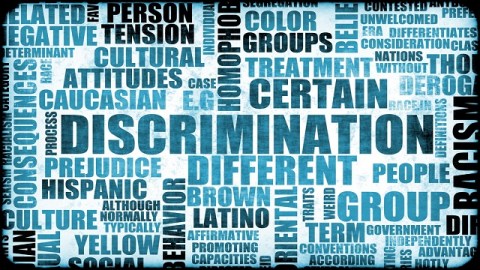Controversy and conclusions

A few weeks ago, I received a few emails and Tweets asking my opinion of Satoshi Kanazawa, an evolutionary psychologist and intelligence researcher from the London School of Economics, joining the ranks of BigThink bloggers. You may remember Kanazawa from last year–he caused a scientific and Internet firestorm after blogging about why he believes African American women are less attractive than other races.
My first inclination was to think about it as a writer. I replied that I thought it was smart of BigThink to bring him on board. He is controversial, a bit salacious, and would probably engage the attention of quite a few readers. (His first post title referring to his small penis shows he knows how to get people clicking).
I also think, while I don’t agree with a lot of his science, that he has a valid point about how political correctness can get in the way of good science. Let me explain.
Since last year’s brou-ha-ha, he has been writing and blogging for a number of outlets. Mainly about how science is truth–and by trying to be politically correct about findings, we may sully that truth and lose important knowledge in the process. In the description of his new BigThink blog, E pur si muove, he writes:
Science is the accumulation of pure knowledge for its own sake; it has no other goals or purposes. In science, only logic and evidence are the arbitrators of the truth; nothing else matters. No scientific conclusions can ever be good or bad, desirable or undesirable, sexist, racist, offensive, reactionary or dangerous; they can only be true or false. No other adjectives apply.
I wholeheartedly agree. Scientists need to be arbitrators of the truth. I’ve seen this firsthand as I’ve researched sex differences in the brain. In the past decade, there has been some very compelling evidence that there are important differences in the ways that the male and the female brain operate. I have an entire chapter dedicated to it in DIRTY MINDS. And yet, people get very, very angry about these impartial results. They somehow equate “different” with “better” or “smarter” — or worse, they decide to ignore the science altogether and say that the scientists who study these kinds of things are misogynists. Either way, important knowledge gets lost in the resulting craziness.
Yet, I think we need to be very careful.
Kanazawa’s initial theories on racial attractiveness stemmed from online survey data. After attending a seminar on “hook up” behavior, he noticed that scientists presenting the results from nearly 20,000 respondents could not explain why African American female and Asian male students had the fewest dates and sexual partners in the mix. Kanazawa said that he was compelled to understand why. He decided it must be physical attractiveness. And he then took to his Psychology Today blog to talk about his reasons behind that hypothesis.
Kanazawa will tell you that his theories were attacked because they were not politically correct. Personally, I think they were attacked because they did not incorporate good science. It was all correlation and conjecture. As any first year psychology student can tell you, correlation is not causality. And just because these two groups had fewer dates does not immediately mean they were less attractive. There could be a large number of other factors at play. It would probably make sense to go back and try to look at those factors empirically before immediately insisting that it’s a question of good looks.
So while I applaud Kanazawa for reminding us that science is truth–that we need to try to untangle our results from our culture and a lot of bothersome biases–I think we’d get more mileage out of the discussion if we could frame it in more substantial science.
What do you think?
Photo Credit: kentoh/Shutterstock.com





